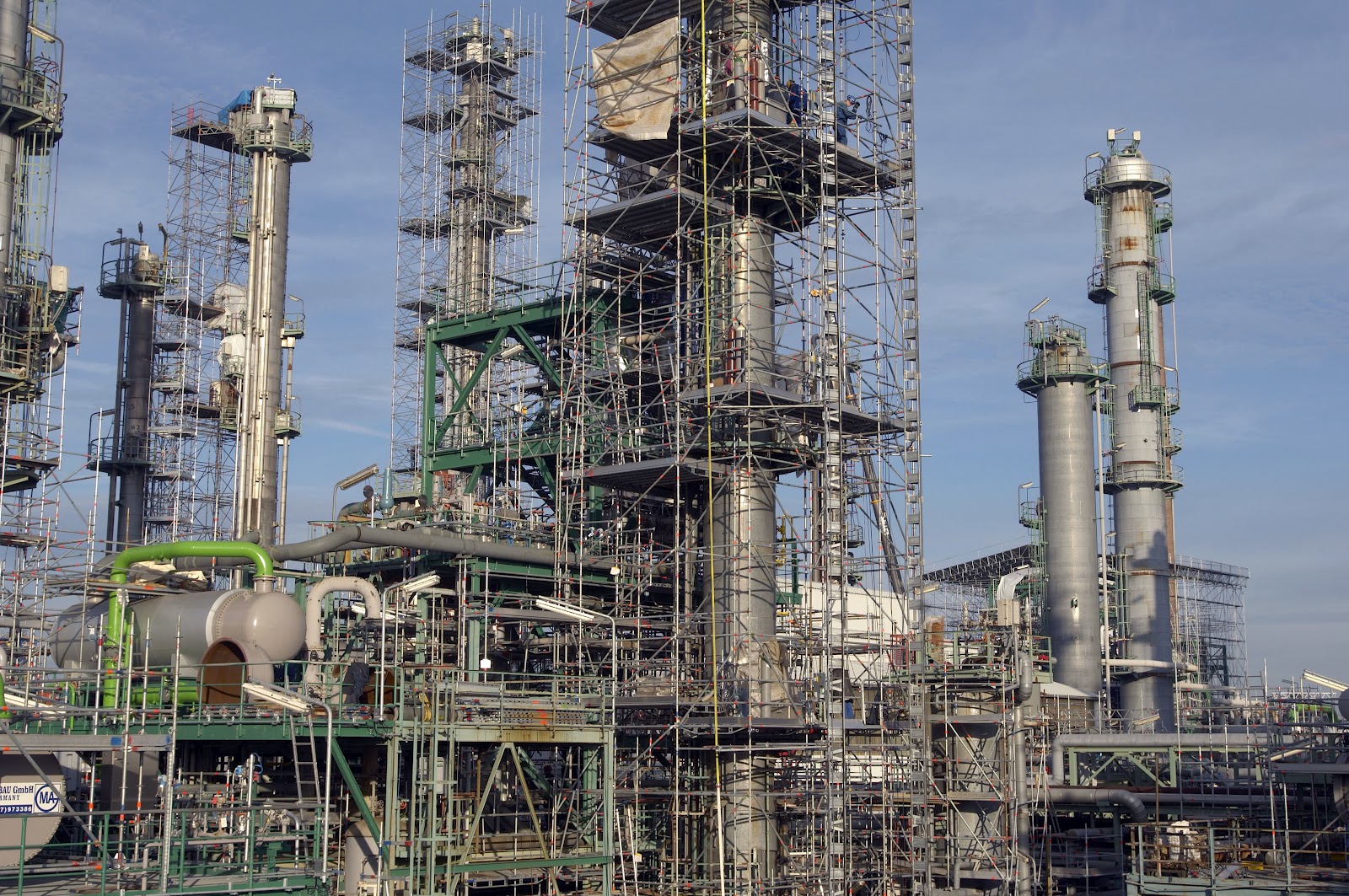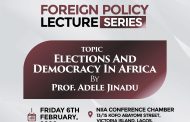Without oil, Nigeria could be in a terrible shape. With oil, Nigeria is no less in trouble because oil is the subject underpinning the greatest internal and external threats to Nigeria’s stability. Yesterday, February 2nd, 2019’s flag-off of drilling activities in the Kolmani River II Oil Well in the Gongola Basin of the Benue Trough thus brings into the 2019 election the question of what or which energy business model would be best for the country. This is in the sense that the event in question is an implicit endorsement of a model opposed to that of the explicit position of Atiku Abubakar of the opposition in his plans to sell the Nigerian National Petroleum Corporation, (NNPC).

President Buhari in Gombe yesterday
By making renewed search for commercial hydrocarbon deposits in Nigeria’s suspect oil sites a state policy, Muhammadu Buhari of the APC implies a statist standpoint on managing oil resources. Although the president seriously dented his claims to statist political economy by his fuel price regime and other neoliberal packages he unleashed since 2015, he has not mentioned privatizing the NNPC which is the referent engine room on energy business model in Nigeria, from exploration to marketing. The geopolitics of energy in a multipolar global order favours even strengthening a state octopus such as the NNPC. It would be difficult to imagine Russian geopolitical successes in the last two decades without a Putin doctrine of oil and national power and the role of its ensembles of state backed oil and gas companies in that.
The problem is that Nigeria is not Russia in global power politics. Russia has managed to overcome internal splits over state and nation. Nigeria is neck deep in exactly that, a crisis in which the president has been heavily criticized for aiding and abetting through nepotism perceived to be calculated. If the tension around Southern Kaduna and Zamfara are anything to go by, solid and liquid materials could kill Nigeria by making it fatally attractive to merchants of death. Whether a different and proactive president is all that Nigeria requires to make the difference in terms of containing such merchants is another matter. For now, President Buhari appears more interested in oil in the north as a balancer of Nigerian federalism. Not a sentiment to dismiss but that doesn’t make light of the oil and instability nexus in the country in the four or so main areas no experts in oil politics would forget warning against , especially for African countries. One, without local capitalists, it means foreign investors and speculators will predominate. Two, agriculture would have to be sacrificed. Three, conflict between the oil establishment and the site(s) of exploration would be inevitable and four, the enclave nature of oil business means that it is a poverty enhancing sector in the African context because it doesn’t employ the poor and the numerous.
Further more, the future does not belong to oil but countries which have the product buried in territories they control must manage the endgame associated with oil. If they think smartly enough, they can still make a difference with it. The snag is that there nothing to assure or guarantee Nigeria is about to think more creatively about oil and national power, although no one can conclude then that this is a permanent condition beyond change.
President Buhari who articulated inclination to exploration of suspected oil rich fields since 2015 has not told anybody any clear practices of how these fears would not be the reality of oil exploration in the suspect sites in the northern part of the country as has been the case in the southern part. Does this make Atiku Abubakar’s own strategy attractive?

Plans selling NNPC perhaps as part of making Nigeria work again
He plans to sell NNPC because it is, in his own words, a mafia. It must be his own way of saying that the NNPC is the hub of the ‘deep state’, a republic within the republic. He suggests that the deep state phenomenon, anchored on the NNPC, has gone beyond the control of the Commander-in-Chief, then the only way to undo it is to sell it. But, sell it to who? How would any buyer(s) be in a position to turn around the corporation that the Nigerian State cannot? How many Nigerians have the resources to buy the NNPC when memories of NITEL in particular are still fresh in people’s memories with particular reference to the point made by legendary scholar and former National President of the Academic Staff Union of Universities, (ASUU), Dr Mahmud Modibbo Tukur.
In a minority report to the Federal Government Study Group on managing public utilities in 1984, Tukur concluded, inter alia that: in the absence of a twin proposal that the would-be beneficiaries of the “privatisation” of NET should also start a telephone company and build their own earth stations, the extent to which “privatizing” NET would defraud the Federal Government on a permanent, continuing basis is too scandalous and mind boggling to contemplate”. He warned that otherwise, government would end up having to fund the so-called privatized State Owned Enterprises, (SOEs). Time and history have proved him totally correct in the case of NITEL. What is the guarantee that it would not even be worse in the case of NNPC? And to think that it is the same Atiku Abubakar who presided over the sale of SOEs makes his audaciousness intriguing. What does he know that the rest of Nigeria might not know? Has he read the letter Tukur wrote to Buhari on the issue in 1984? Is his unique insider knowledge or a case of positioning a self-fulfilling political economy? Questions that only time might tell.




























